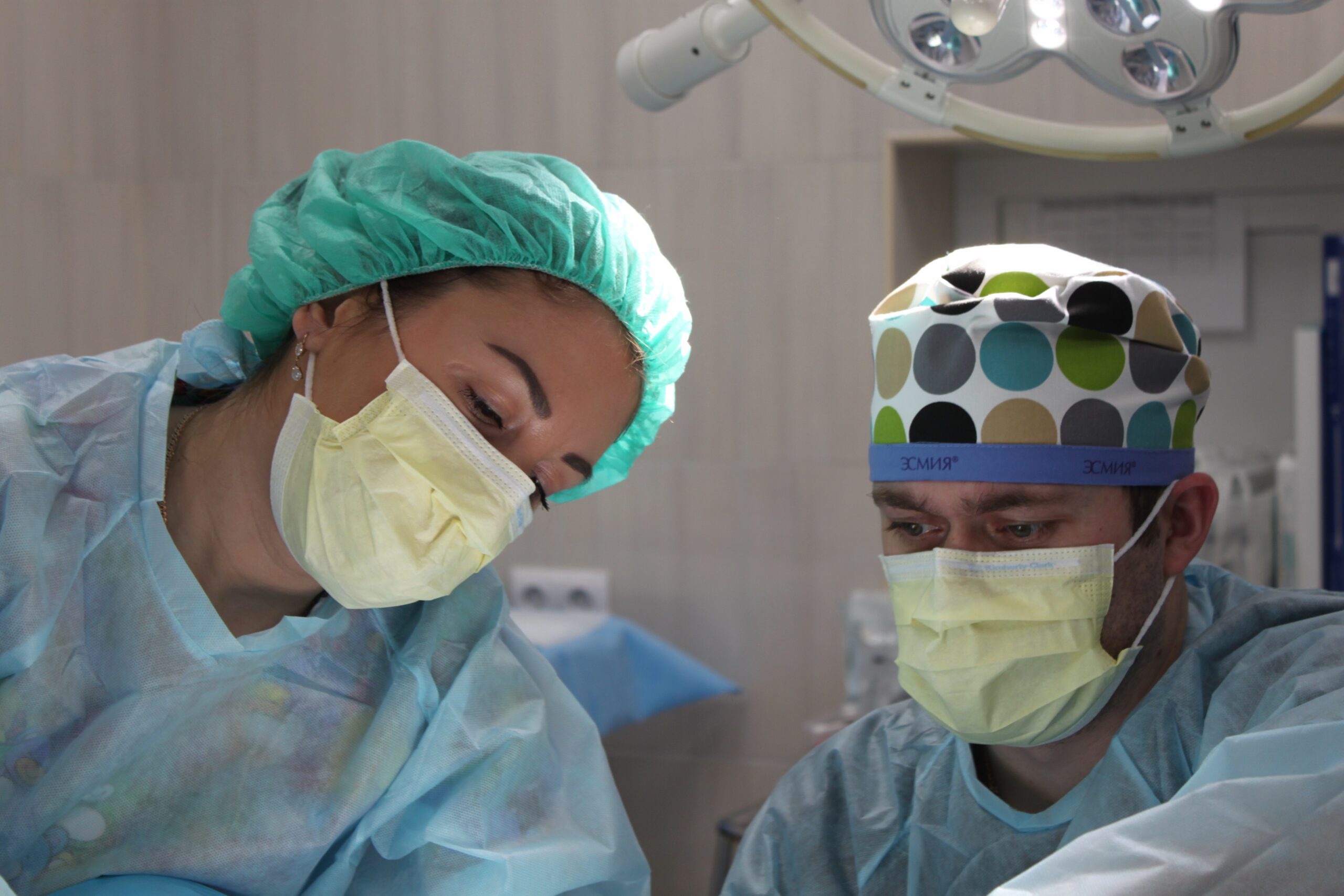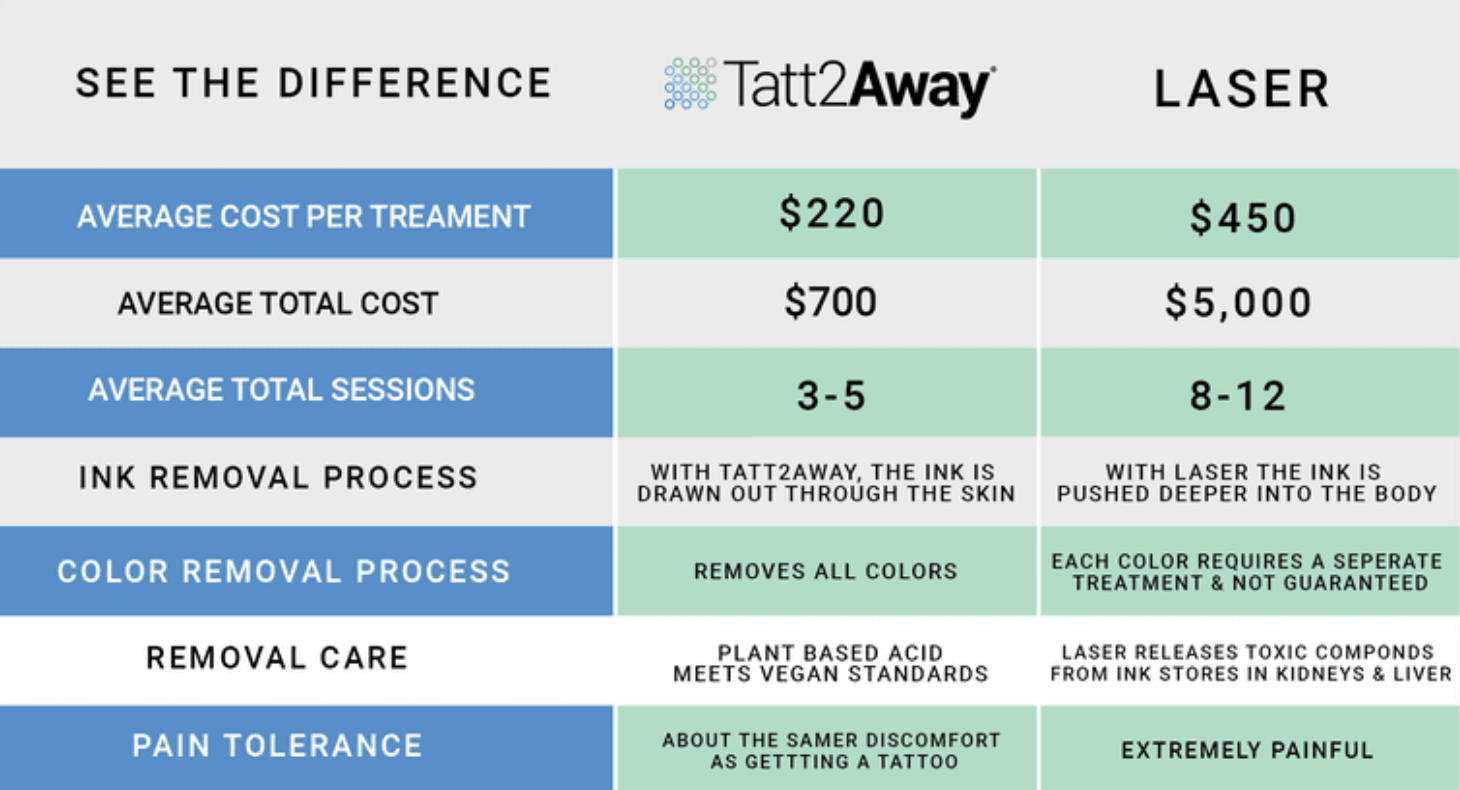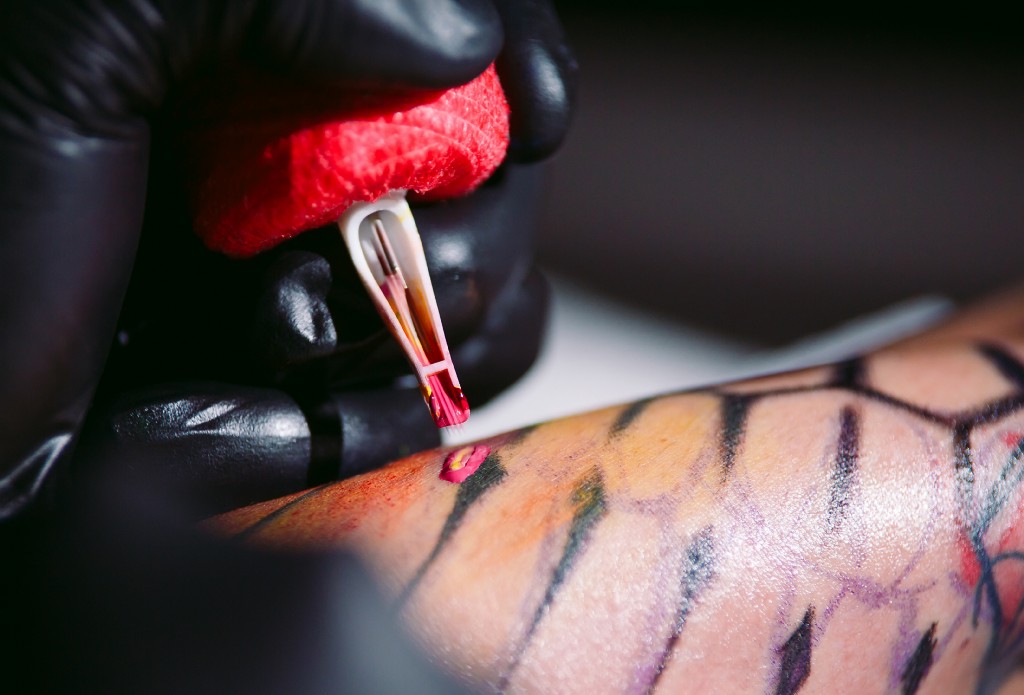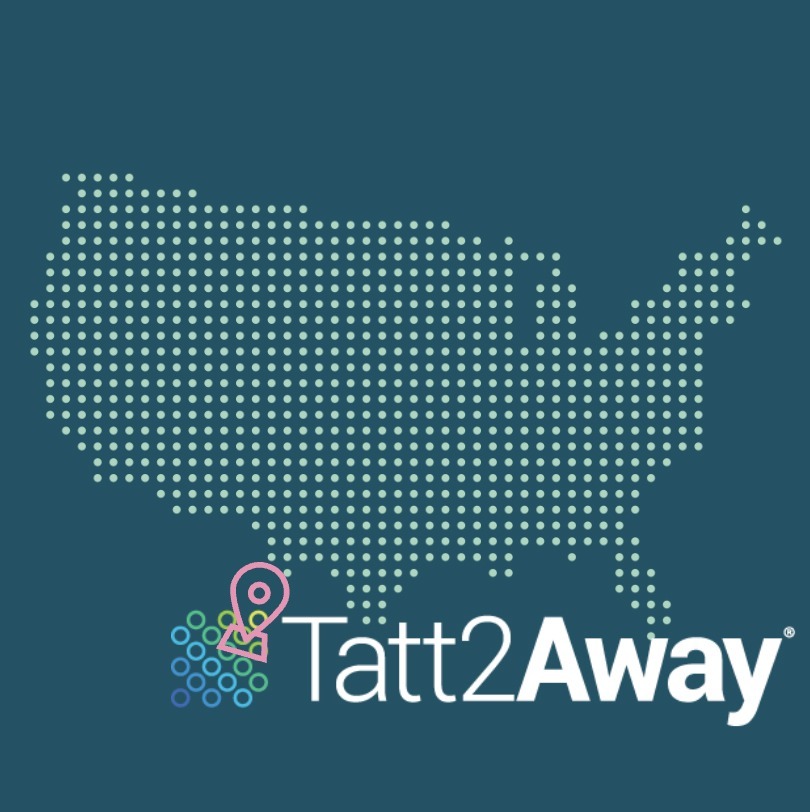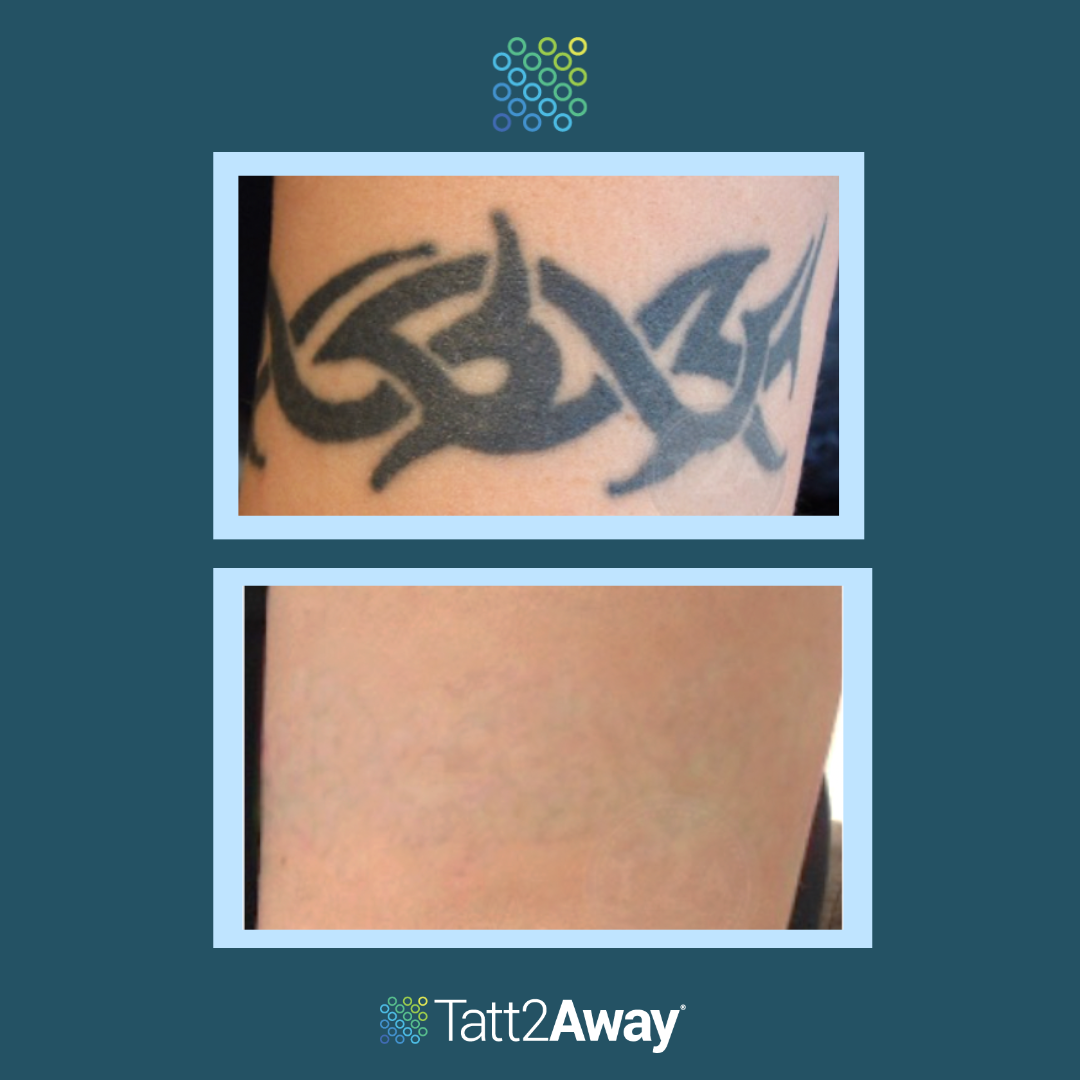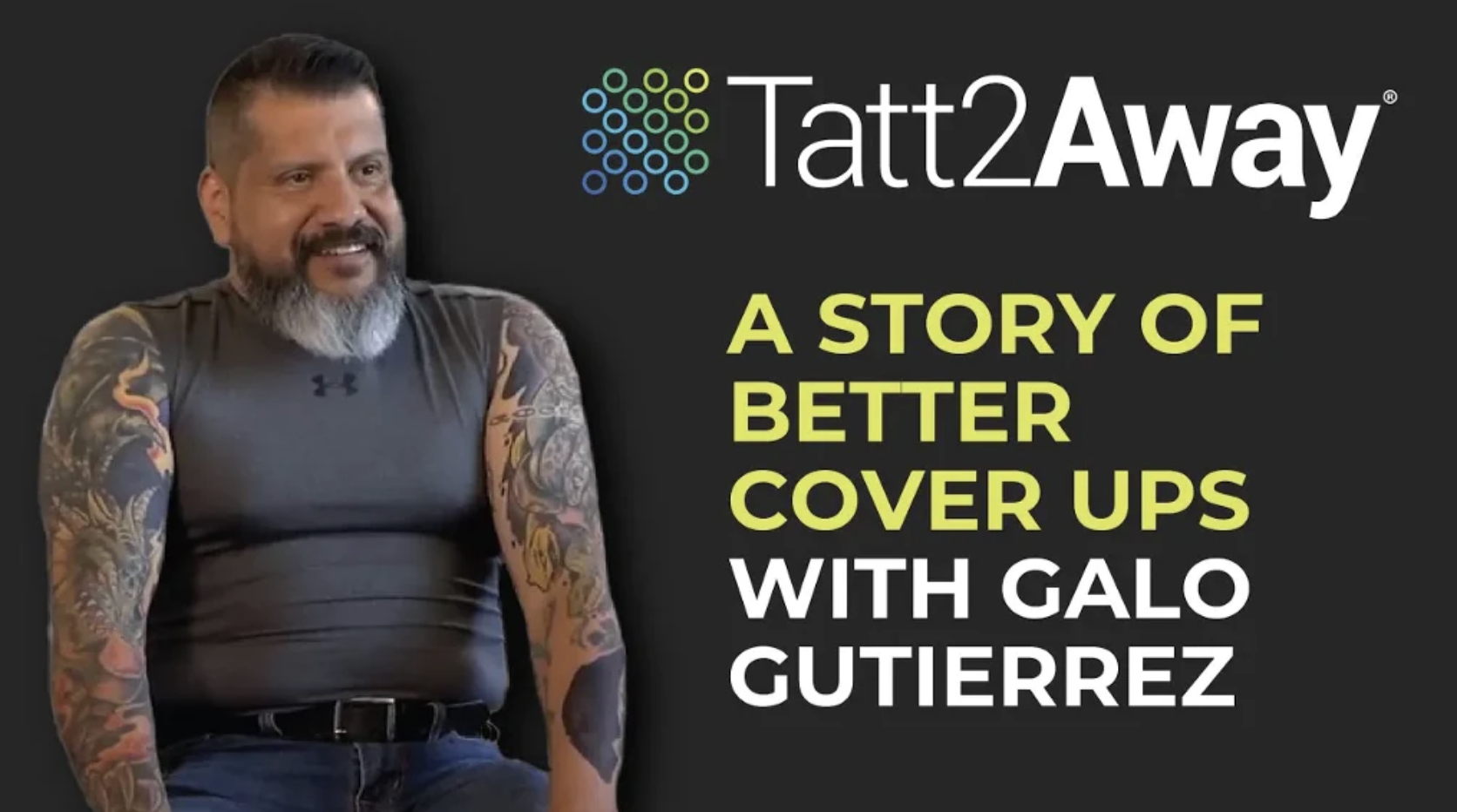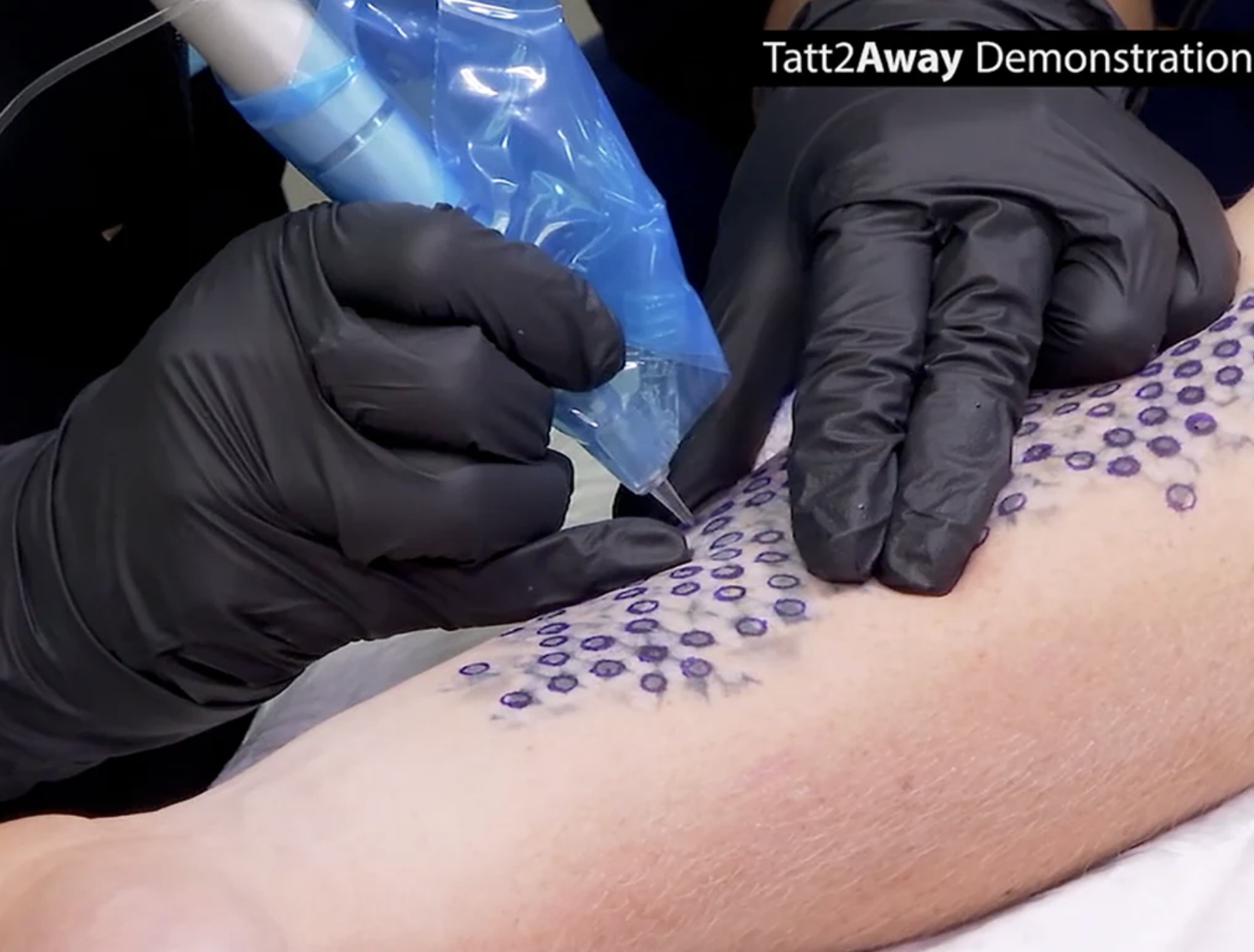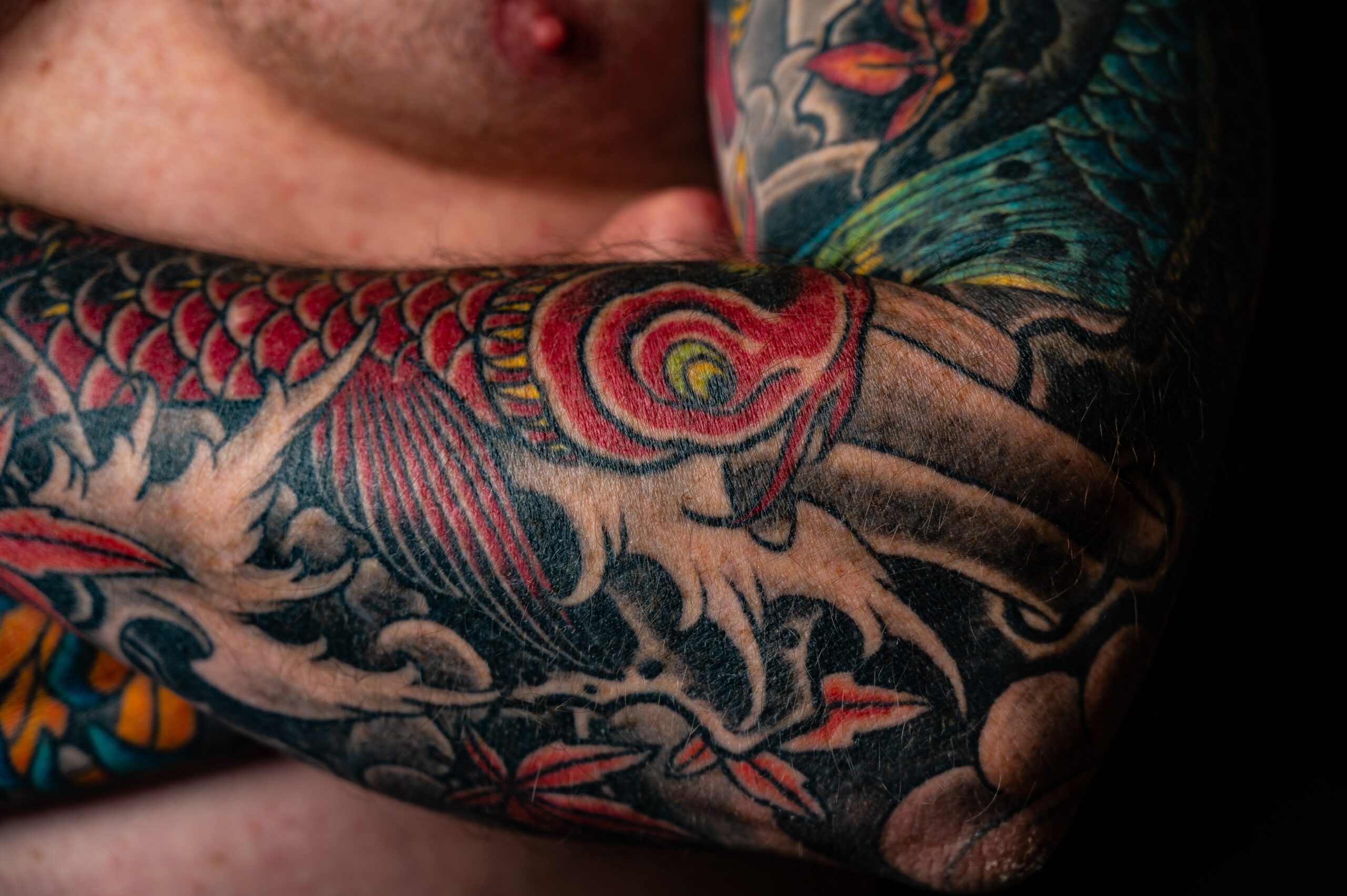Common Jobs That Don’t Allow Tattoos
Workplaces Tattoo Policies
When it comes to searching for a job, many people think tattoos are now widely accepted. There’s no way a company wouldn’t hire you just because you have a tattoo! While tattoos are certainly more commonplace than ever before, there are still a few careers with tight restrictions when it comes to tattoos. Follow along with Tatt2Away® for the inside scoop!
- Military
- Airlines
- Medical Professionals
- Actors
- Teachers/Educators
- Law Enforcement
- Corporate
- Legal
- Banking and Finance
- Hospitality
- Social Workers
- Models
- UPS
1. The Military’s Tattoo Policy
Wondering if you can have tattoos in the army? It’s probably no surprise that the military enforces strict rules and regulations regarding tattoos. While most branches do allow some tattoos, they generally must be covered when wearing uniforms or military dress attire. Tattoos on the neck, face, tongue, or head are typically prohibited. However, some branches may allow tattoos on the hand, such as a ring/wedding band tattoo or a small tattoo no larger than 1×1 inch. Interestingly, the Army even permits tattoos smaller than 1 inch behind the ear!
The Air Force updated its hand tattoo policy this year, now allowing tattoos that cover less than 25% of the hand if the recruit has a waiver. It’s possible we might see other branches adopt similar changes in the future!
If you’re aiming to join the military but have tattoos that make you ineligible, visit us at Tatt2Away®. We can help you remove your unwanted ink more quickly than other methods, giving you a head start on your career. Whether you’re applying for a job with strict tattoo policies or need to meet military requirements, let us assist you in removing your tattoos. Be sure to check out the Tatt2Away® before and after pictures to see the results.
You can also learn more about the military tattoo policy here.
2. Airline Tattoo Policies (Flight Attendants)
You might have heard rumours that you can’t become a flight attendant if you’re under a certain height, but what about having tattoos? Have you noticed that many flight attendants wear long sleeves or don’t seem to have any visible tattoos? This is because many airlines have strict tattoo restrictions.
While policies can differ between airlines, most companies do not allow visible tattoos, particularly on the hands, neck, or face. Some airlines even restrict tattoos on the legs or arms if they can be seen while wearing a skirt or short sleeves. Despite the modern world’s increasing acceptance of tattoos, the airline industry often prefers that client-facing professionals remain tattoo-free.
That said, certain airlines, such as United Airlines, do allow small visible tattoos. Some airlines are also in the process of updating their tattoo policies, so if you have tattoos and are looking to work for an airline, keep an eye on these changes. However, to maximise your job opportunities, consider removing any tattoos in visible areas with Tatt2Away®.
Related Post: Best Time to Remove Your Tattoo
3. Medical Professional Tattoo Policy
Can doctors and nurses have tattoos? While hospitals typically expect medical professionals to maintain a professional appearance, having tattoos doesn’t necessarily conflict with this expectation. Many institutions are becoming more accepting of doctors and nurses with tattoos, although visible tattoos on the neck or face might still be discouraged. The key is ensuring that tattoos do not disrupt the patient-doctor relationship or compromise patient comfort and trust.
Similar to other industries, the requirements for visible tattoos in the medical field are evolving. As tattoos become more common, tattoos that adhere to dress codes (at least in the medical industry) are starting to be more accepted.
If you are interested in tattoo removal services, make sure to check out Tatt2Away®’s removal process to see how it works.
4. Actor’s Tattoo Policies
While many celebrities sport tattoos these days, having visible tattoos can sometimes make it harder for an aspiring artist to land roles. Extra time in the makeup chair covering tattoos or additional visual effects added post-production could be reasons why directors might hesitate to cast an actor with tattoos. Of course, plenty of actors have tattoos and continue to land roles, but the industry can be unpredictable. You may have heard of celebrities like Pete Davidson recently opting to remove their tattoos.
If you’re considering removing your tattoos to establish or refine your acting brand but don’t want to go through harsh methods like “burning them off” as Pete Davidson is reportedly doing, book with us at Tatt2Away— the body’s natural way to remove tattoos.
Related Post: Is Tattoo Removal Painful?
Learn more about the tattoo policies for actors and entertainers.
5. Tattoo Policies for Teachers
As role models and leaders for young minds, many educational systems and universities request their staff to avoid displaying visible tattoos to set a positive example for students. Whether a school asks its staff to cover up tattoos can depend on various factors, such as the age of the students, the reputation of the institution or school district, and cultural or community standards.
While debates continue about whether educators should be allowed to display tattoos, many teachers and professors choose to err on the side of caution. By not having visible tattoos, they may find it easier to connect with students and avoid potential issues with their administration.

Learn more about teachers and other educators and their tattoo policies.
6. Law Enforcement Tattoo Policy
Law enforcement agencies often enforce strict appearance standards to project a professional image and maintain public trust. These policies generally extend to visible tattoos, with many departments requiring officers to cover them with long sleeves, makeup, or uniform adjustments. Some agencies may even prohibit tattoos on specific areas such as the face, neck, or hands.
These restrictions are designed to ensure a consistent and professional appearance among officers, fostering authority and respect in their interactions with the community. Given the diverse populations that law enforcement serves, these policies also aim to minimise potential biases and negative perceptions that visible tattoos might evoke in some individuals.
For those aspiring to a career in law enforcement, it’s crucial to familiarise themselves with the specific tattoo policies of the departments they’re interested in before pursuing this path. If existing tattoos could pose an issue, Tatt2Away offers a reliable option for removing them in a natural and effective manner.
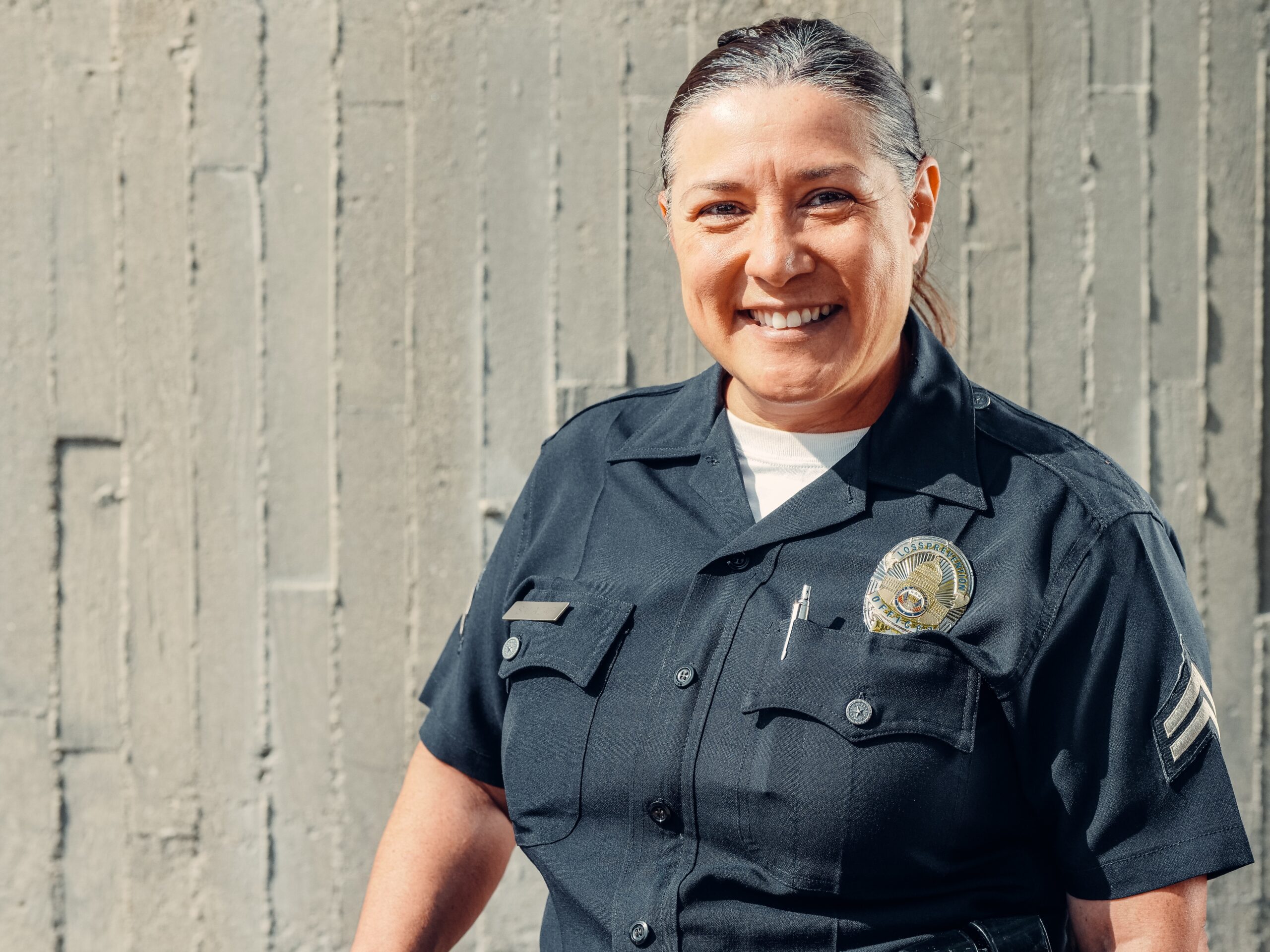
Learn more about the tattoo policies for law enforcement professionals.
7. Corporate Professionals
On the corporate world, maintaining a polished and conservative appearance is often key to upholding the organisation’s reputation and building client trust. As a result, visible tattoos may be subject to specific policies and restrictions. Many companies, especially those with client-facing roles or executive positions, expect employees to follow strict dress codes and appearance guidelines. These often include covering visible tattoos or avoiding tattoo placements that are difficult to conceal.
The goal of these restrictions is to project an image of professionalism, competence, and reliability—qualities that are crucial in fostering strong business relationships. For those considering a career in the corporate sector, it’s essential to research potential employers’ tattoo policies and understand the expectations regarding appearance in your chosen field. If you have visible tattoos that might not align with these expectations, Tatt2Away provides an effective solution for removing or revising your ink to better fit your professional image.

Get more information about the tattoo policies for Corporate Professionals.
8. Legal Professionals
Legal professionals, including solicitors, barristers, judges, and paralegals, are held to a high standard of professionalism in their appearance, as they represent not only themselves but also their clients and the legal system. Visible tattoos may be subject to policies and restrictions within the legal profession to maintain these standards. Law firms, courts, and other legal institutions often enforce conservative dress codes and appearance guidelines to ensure a dignified and respectable image.
These guidelines may require covering visible tattoos or avoiding tattoo placements that are difficult to conceal, especially during court proceedings or client meetings. Adhering to these restrictions is crucial for establishing credibility, fostering trust, and upholding the fair and unbiased administration of justice. Aspiring legal professionals should familiarise themselves with the specific tattoo policies of potential employers and understand the expectations regarding appearance within the legal field. If visible tattoos pose a concern, Tatt2Away offers a natural solution for revising or removing tattoos to align with professional standards.
9. Banking and Finance
Banking and finance professionals operate in environments where trust and professionalism are paramount, given their responsibilities in handling sensitive financial transactions and client relationships. As a result, visible tattoos may be subject to policies and restrictions within these industries. Financial institutions, particularly those with customer-facing roles or in executive positions, often enforce conservative dress codes and appearance standards. These standards may require covering visible tattoos or avoiding tattoo placements that are difficult to conceal.
The rationale behind these restrictions is to project a professional, trustworthy image that instills confidence in clients and partners. Adhering to these guidelines is crucial for maintaining strong business relationships and ensuring the smooth operation of financial services. For those considering a career in banking and finance, it’s important to research the specific tattoo policies of prospective employers and understand the appearance expectations within the industry. If visible tattoos are a concern, Tatt2Away offers a natural and effective solution for revising or removing tattoos to align with professional standards.

Learn more about the tattoo policies for professionals in banking and finance.
10. Hospitality Industry Tattoo Policies
In the hospitality industry, employees often represent the establishment, and their appearance plays a significant role in shaping the guest experience. Because of this, visible tattoos may be subject to specific policies and restrictions within this sector. Hotels, restaurants, and other service-oriented businesses, particularly those catering to luxury or high-end clientele, typically enforce conservative dress codes and appearance guidelines.
These guidelines may require employees to cover visible tattoos or avoid tattoo placements that are difficult to conceal. The aim of these restrictions is to maintain a consistent, polished image that aligns with guest expectations and contributes to a positive and professional atmosphere. For those pursuing careers in hospitality, it’s essential to familiarise yourself with the specific tattoo policies of potential employers and understand the appearance standards expected in your chosen role.
However, it’s important to note that these restrictions can vary widely depending on the organisation, location, and cultural context. Many businesses are becoming more accepting of tattoos, and some may have relaxed or no restrictions on visible tattoos. As the industry evolves, it’s crucial to research the policies of the organisations you’re interested in to determine their stance on visible tattoos. If tattoo visibility is a concern, services like Tatt2Away offer options to revise or remove tattoos to better align with professional standards.
More about the hospitality tattoo policies.
11. Social Workers’ Tattoo Policies
Tattoo policies for social workers can vary significantly depending on the specific context and nature of their work. Some organisations and agencies may hold conservative views, requiring social workers to keep tattoos covered during professional hours, while others may be more relaxed about visible tattoos. This flexibility often depends on the type of clients served and the overall organisational culture.
For instance, a social worker dealing with youth in urban areas, where tattoos are often part of the cultural norm, might face fewer restrictions compared to a social worker in a more formal, traditional setting. It’s important to note that in social work, tattoos aren’t usually seen as an issue of professionalism but rather as a factor that could potentially influence relationships with clients.
In all cases, it is advisable for social workers to ensure that their tattoos, if visible, are appropriate and not offensive or controversial, as they must always aim to foster a comfortable and respectful environment for their clients. Understanding the specific tattoo policies of the organisation you’re interested in is essential, as these can impact how you present yourself in a professional setting.

Learn about the tattoo policy for social workers.
12. Model Tattoo Policies
Can models have tattoos? In the modelling industry, tattoo policies largely depend on the specific segment of the industry and the brand or designer’s aesthetic preferences. Some high-fashion brands or traditional runway shows may still prefer models without visible tattoos, as they often seek a ‘blank canvas’ to best showcase their designs. However, there has been a noticeable shift in recent years, with many parts of the industry embracing the unique and personal nature of tattoos, which can serve as a way to differentiate a model and add to their individual appeal.
Brands that cater to a younger, edgier audience might actively seek models with tattoos, seeing them as an asset that aligns with their brand image. In commercial and alternative modelling, tattoos are typically viewed as less of a hindrance and can even be a selling point. Despite this growing acceptance, it’s important for models to recognise that the visibility of tattoos may still influence the types of jobs they are offered.
Therefore, any model considering a tattoo should carefully consider its placement, ensuring it can be covered if needed, to maximise their opportunities across different types of modelling work.

Model tattoo policies you should know about.
13. UPS Tattoo Policies
UPS, known for its global delivery services, has recently updated its policies to better reflect changing societal norms and inclusivity. The company, which employs over half a million people worldwide, previously enforced a strict appearance policy that required employees to conceal their tattoos. However, following a significant policy shift in 2021, UPS now allows its workers to display tattoos openly.
This more relaxed stance towards visible tattoos applies to all employees, including those in customer-facing roles, marking a considerable departure from previous regulations and signalling a greater acceptance of individual expression within the workplace. Despite this change, UPS employees are still expected to ensure that any visible tattoos are appropriate and non-offensive, maintaining a respectful and professional environment for everyone.
Different Ways You Can Cover Up Your Tattoos for Work
Covering up tattoos for work can be necessary in some professional settings. Here are a few different methods to consider:
Clothing:
The simplest way to cover tattoos is by wearing clothing that conceals them. Depending on the location of your tattoo, long-sleeved shirts, high-necked tops, or long pants can be used to cover tattoos on the arms, neck, and legs, respectively.
Makeup:
Specialised tattoo cover-up makeup is available, often in the form of full-coverage foundation or concealer. To cover a tattoo with makeup:
- Start with a primer to help the makeup adhere better.
- Use a colour corrector if needed to neutralise the tattoo colour (for example, an orange corrector for a blue or black tattoo).
- Apply a full-coverage concealer or foundation that matches your skin tone. You might need to apply several layers, allowing each to dry before applying the next.
- Set your makeup with a setting powder or spray to make it last longer and prevent smudging.
Bandages or Accessories:
Bandages, wristbands, or wide bracelets can cover smaller tattoos depending on the tattoo’s location. Scarves can cover neck tattoos, while hats or hairbands can conceal those on the forehead or scalp.
Tattoo Cover-Up Sleeves:
These fabric sleeves are worn on the arms or legs to cover tattoos. They come in various skin tones and can be a quick and comfortable solution.
Professional Airbrushing:
For special occasions, consider professional airbrushing. Some makeup artists specialise in covering tattoos.
When using makeup products, ensure you’re not allergic to any ingredients, and always remove the makeup at the end of the day to let your skin breathe.
Do You Have Tattoo Regret? Remove Your Unwanted Tattoos With Tatt2Away®
Even though there’s ongoing debate about professionals showing their tattoos, some industries still have strict guidelines regarding visible ink. If you’re in a career that doesn’t allow tattoos, and you’re considering removing some of yours, Tatt2Away can help! Tatt2Away offers the quickest and safest way to get you started on your dream job path.
With Tatt2Away, ink is removed with every session, leading to quicker results and visible progress.
For the latest tattoo news and trends, make sure to visit our blog. You can also contact us for more information about natural tattoo removal.




